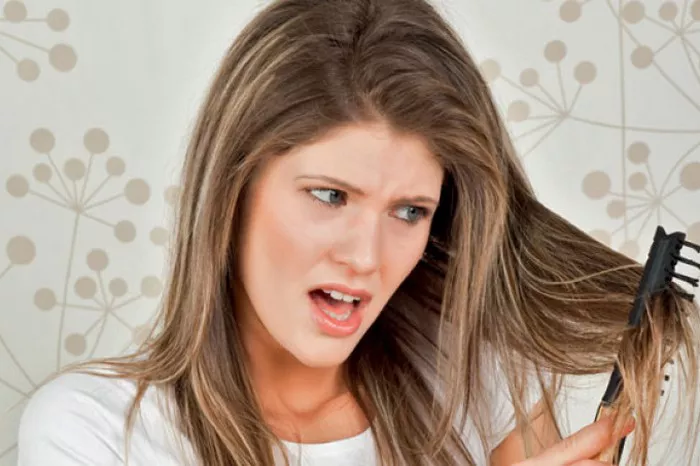Hair loss is a common concern for many individuals, and stress is often cited as a significant factor in its onset. While a full head of hair is often associated with vitality and youthfulness, the impact of stress on hair follicles can lead to various forms of hair loss. Understanding the mechanisms behind stress-related hair loss is crucial for effective management and potential reversal of the condition. In this article, we will explore the different types of stress-related hair loss, how stress affects hair follicles, the importance of seeking professional help, stress reduction techniques, promoting healthy hair growth, and the patience required for recovery.
Types of Stress-Related Hair Loss
Stress-related hair loss can manifest in several forms, each with its unique characteristics and underlying mechanisms. Telogen effluvium is one such type, characterized by an abrupt shedding of hair caused by a disruption in the hair growth cycle. Typically, a significant emotional or physical stressor triggers this condition, leading to a larger-than-normal proportion of hair follicles entering the resting phase (telogen) prematurely. As a result, excessive hair shedding occurs, often several months after the triggering event.
Alopecia areata is another form of stress-related hair loss, albeit with an autoimmune component. In this condition, the body’s immune system mistakenly attacks hair follicles, leading to patchy hair loss on the scalp or other parts of the body. Stress is thought to exacerbate alopecia areata, although its precise role in triggering the condition remains under investigation.
Trichotillomania, on the other hand, is a compulsive behavior characterized by the urge to pull out one’s hair, often in response to stress or anxiety. This repetitive behavior can lead to noticeable hair thinning or bald patches, further contributing to the cycle of stress and hair loss.
Impact of Stress on Hair Follicles
Stress can exert its effects on hair follicles through various mechanisms, disrupting the delicate balance of the hair growth cycle. One such mechanism involves the release of stress hormones, such as cortisol, which can interfere with normal hair follicle function. Prolonged or chronic stress may also lead to inflammation and oxidative stress, both of which can impair hair growth and contribute to hair loss.
Furthermore, stress can disrupt the microcirculation around hair follicles, compromising the delivery of essential nutrients and oxygen. This deprivation can weaken the hair shaft and impede its growth, leading to increased susceptibility to breakage and shedding.
Seeking Professional Help
If you’re experiencing hair loss related to stress, it’s essential to seek professional help to confirm the diagnosis and explore potential underlying causes. While stress is a common trigger for hair loss, it’s crucial to rule out other medical conditions that may be contributing to the problem. Your healthcare provider or a dermatologist can perform a thorough evaluation, which may include blood tests to assess hormone levels, thyroid function, and autoimmune markers.
It’s also essential to recognize that stress-related hair loss may be a symptom of an underlying issue, such as hypothyroidism or autoimmune diseases like lupus or psoriasis. Addressing these underlying conditions is critical for managing hair loss effectively.
Stress Reduction Techniques
Managing stress is key to mitigating its impact on hair health. Incorporating relaxation techniques into your daily routine can help reduce emotional and physical stressors, promoting overall well-being and healthier hair growth.
1. Meditation: Practice mindfulness meditation to calm the mind and alleviate stress.
2. Deep breathing exercises: Engage in deep breathing exercises to promote relaxation and reduce tension.
3. Yoga: Incorporate yoga into your routine to improve flexibility, strength, and mental clarity.
4. Mindfulness: Stay present and focused on the moment to reduce anxiety and stress levels.
In addition to relaxation techniques, adopting a healthy lifestyle can also help manage stress more effectively. Regular exercise, adequate sleep, and balanced nutrition are essential components of stress management.
Promoting Healthy Hair Growth
While managing stress is crucial for preventing further hair loss, promoting healthy hair growth requires a multifaceted approach that addresses nutritional, scalp, and topical factors.
1. Nutrition: Ensure your diet includes adequate protein, vitamins, and minerals essential for hair health. Foods rich in protein, such as lean meats, fish, eggs, and legumes, can support hair growth and strength.
2. Scalp care: Keep your scalp clean and free from buildup by washing with a gentle shampoo. Avoid harsh chemicals and excessive heat styling, which can damage hair follicles and impede growth.
3. Topical treatments: Consider using topical treatments, such as minoxidil, to stimulate hair growth and prevent further loss. Consult with your healthcare provider or dermatologist before starting any new treatment regimen.
Patience and Timeframe
It’s important to remember that hair loss due to stress may take time to reverse, and patience is key to seeing results. Once the underlying stressor is identified and addressed, hair growth typically resumes within a few months. However, it’s essential to manage expectations and understand that the recovery process may vary from person to person.
In conclusion, stress-related hair loss is a common yet distressing condition that can have a significant impact on self-esteem and quality of life. By understanding the different types of stress-related hair loss, seeking professional help, practicing stress reduction techniques, promoting healthy hair growth, and exercising patience, individuals can take proactive steps toward managing and reversing this condition. Remember, addressing stress is not only beneficial for hair health but also for overall well-being.


